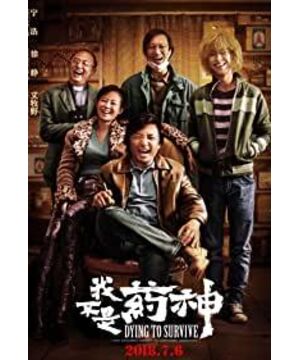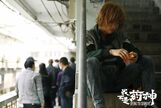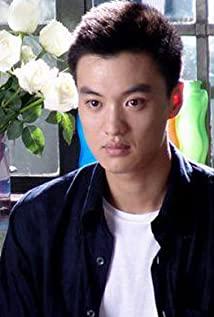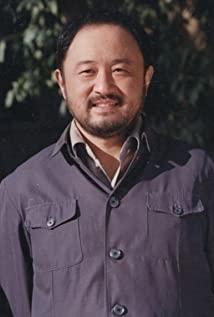one
Watching the movie "I'm Not the God of Medicine" with my friends, I suddenly thought of the Lu Yong case a few years ago.
Because leukemia friends purchased the Indian drug Gleevec, they were arrested on charges of "obstructing credit card management" and "selling counterfeit drugs". Finally, with solidarity, the Procuratorate of Yuanjiang City, Hunan Province believed that it was the purchase behavior organized by the patients, not the sale. The crime of falsifying credit cards for the purpose of buying medicines was a minor crime, so it was decided not to prosecute Lu Yong, and he was acquitted at the public prosecution stage, which was much better than the five-year sentence in the movie Miley Yong's trial.
The plot of the movie itself is not complicated. The price of the medicine developed by the Swiss company in China is much higher than that of the imitation products in India, and the efficacy is similar. Therefore, the patients who are waiting to die pin their hopes of survival on the smuggling and selling of Indian medicines. In the male protagonist Cheng Yong, a low-level diaosi with a mid-life crisis suddenly became the savior of the patients.
In China, the methods of making money are written in the "Criminal Law". How can India's Gleevec, which has the same effect as the Swiss drug, become a "fake drug" and is prohibited from being sold?
According to Paragraph 2 of Article 48 of the Drug Administration Law of the People's Republic of China, production or import that must be approved but not approved, or that must be inspected but sold without inspection, shall be treated as counterfeit drugs.
Therefore, the unapproved Indian Gleevec has become a "fake drug" in the legal sense.
two
As a criminal defense lawyer, I decided to tell you about the dark thread in the film from the perspective of patents - the story behind the counterfeit medicine.
In reality, Cheng Yong played by Xu Zheng, smuggled Indian medicine and genuine Swiss medicine are two different medicines.
This change is very important. He gives the male protagonist the legitimacy of infringement. It is no longer as simple as disrupting the country's drug management order, hiding the fact that he is infringing another company's patent rights.
There is no doubt that the real drug for chronic myeloid leukemia is imatinib mesylate invented in 1998 by the Swiss pharmaceutical company Novartis, which is also sold in China. It's the kind that 40,000 boxes of leukemia people can't afford in the film, that is, the father of the gold owner who put pressure on the police one after another in the film.
In the same year, the Indian NATCO company produced the generic drug VEENAT, and NATCO company has an agent CYNO company, which in turn imitated imatinib mesylate, which is the Indian drug supplier in the tablet. The price is relatively low, and it is sold in China. No.
In short, the actual Indian medicine infringes the patent rights of Swiss medicine in terms of research and development materials and finished medicine technology, but Indian medicine has made slight improvements in the crystallization method of Swiss medicine.
Of course, India's patent law leaves a bug, Section 3(d) states that derivatives of known drugs cannot be patented unless they can show different efficacy.
In other words, if a drug is developed and patented, but then a new version is created, the original patent does not apply to the new version.
In other words, copywriting is not plagiarism.
As a result, Novartis of Switzerland fought a lawsuit for 7 years, and on April 1, 2013, it received the decision of the Supreme Court of India to lose the case: the patent application for Gleevec was rejected, and there was no patent right from beginning to end.
In this way, the poor people of India can ignore the face of the capitalists of the real Swiss medicine and continue to eat cheap medicine legally.
The "Patent Laws" of different countries are different. The anticancer drug of Swiss Novartis has successfully obtained the patent right in China.
Chinese leukemia patients can only obediently pay sky-high medical expenses to prolong their lives.
Behind the two different prices is the patent game of three countries.
three
In order to pass the trial, the film did not dare to face the problem, in fact, through the mouth of the arrested villain Zhang Changlin: "The most difficult thing to treat is poverty."
Poverty is the original sin, it sounds so unpolitically correct, but we should face a question: how do we pay for the exorbitant royalties?
Should the law protect patents? The answer is it should.
The professional research and development process is laborious, expensive and time-consuming. Without patent protection, there will be no pharmaceutical companies to conduct research, which means that no one will be saved from the disease, and more people will die in pain, up to the dignitaries. Nobles, down to the struggling dancer thief priest in the film.
Without the protection of originality, our society will be stagnant.
The more detailed and differentiated protection of originality is a reflection of the country's civilization, which requires a balance between interests and skillful handling of legislation and law enforcement.
Some people think that people who sell counterfeit medicines should no longer be convicted. This kind of thinking avoids another question: what if Cheng Yong, who paid the discount, was Zhang Changlin who sold the medicine for 20,000 yuan?
In the face of the rigid need of life and death, the monopolist who begged for the channel found in his conscience that selling medicines with money was a kind of intellectual laziness.
In fact, our Supreme People's Procuratorate and Supreme People's Court also did the same. On November 18, 2014, after the Lu Yong case, they issued the "Judicial Interpretation on Handling Criminal Cases Endangering Drug Safety":
Article 11 stipulates that the sale of a small amount of unapproved imported foreign or overseas medicines, without causing harm to others or delaying diagnosis and treatment, and the circumstances are significant and minor and the harm is not serious, shall not be considered a crime.
This is judicially progressive, but seeking truth from facts, this one-step approach neither protects the patent rights, nor solves the patients’ huge demand for medication, and may also disrupt the order of the drug management market.
In fact, our "Patent Law" has already given a perfect solution, that is, the compulsory license of patent implementation, and let the patent department of the State Council decide on this issue:
Article 49 of the "Patent Law" stipulates that in the event of a state of emergency or extraordinary situation in the country, or for the purpose of public interest, the patent administration department of the State Council may grant a compulsory license to exploit a patent for invention or a patent for utility model. Article 50 of the "Patent Law" stipulates that, for the purpose of public health, the patent administration department of the State Council may give compulsory manufacture and export to countries or regions that comply with relevant international treaties to which the People's Republic of China is a party. license.
In addition, there is room for manipulation in terms of the composition of drug prices. For example, like the ending of the movie, alternative drugs are included in the medical insurance system, or special drugs are exempted from tariffs, so that ordinary people can afford life-saving drugs.
There has never been a savior, and heroism does not have to be achieved through class struggle.
View more about Dying to Survive reviews











